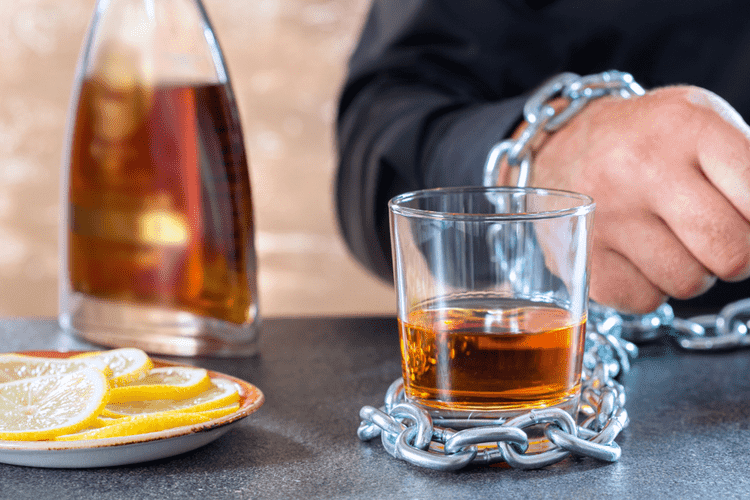23 Nov How to Get Sober: A Guide to Sobriety
In your imagination, give the ball to your past self and watch as your love surrounds and eventually engulfs them. This is exercise is a little out there, but it has proven to be beneficial for staying sober. When something is wrong with you and you don’t understand it, it’s infinitely more scary.
Stay Hydrated
- Twelve-step programs like Alcoholics Anonymous, Narcotics Anonymous and others also offer great support and knowledge on how to get sober.
- For many people with a substance use disorder, it’s simply a matter of never having learned the appropriate way to manage anger.
- Depending on your primary substance of abuse and how long you’ve been using, you may first need the support of a medically supervised detoxification (detox) program.
- Hear from real people who have struggled with substance misuse.
- USA TODAY is exploring the questions you and others ask every day.
For Joe Marks, drinking had become so ingrained that 90 days in a treatment facility barely made a dent. « Two weeks later, I was going to pick up a pack of cigarettes, and what do I have in my hands? Two half-gallons of booze. It started all over again, » he says. She realized she had more in common with the people in the program than she’d thought. « They were talking about solutions, and they had stories that were similar to my lived experience, » she says.

Identify Your Triggers
You might also consider beginning during a “sober month,” like Dry January or Sober October, to make things easier. If you make exercise a part of your process of getting sober, you’re less likely to go back to using. It just might make the difference between relapse and recovery. Practicing mindfulness has helped many people recover from addiction. Tai chi is both a mindfulness practice and a gentle form of exercise. It involves slow movements and helps you think more clearly and calmly, which can help you make good choices during recovery.
Resources of how people got sober:
If you’re not experiencing negative health effects right now, it might be a good idea to learn about what could happen if you do keep drinking. Deciding to quit isn’t easy, but it’s a brave and commendable first step toward becoming sober. You may not be completely ready to stop drinking or know exactly how to get sober from alcohol, but even just having the thought that you want to stop and need help is a good place to start. Sobriety can be a fixed-term goal like staying sober for a set period (such as Dry January), or a lifelong goal of staying sober from all substances. Along with these benefits, 12-Step programs and other forms of mutual-help groups can increase the likelihood of achieving and maintaining recovery from substance misuse. Research from the Department of Veterans Affairs demonstrates that people who participate in 12-Step programs tend to have better outcomes than those who don’t.

Their process of getting sober will depend on numerous factors, including the severity of drug or alcohol use disorder and long-term goals of sobriety. Sobriety is a general term for staying away from mood- and mind-altering substances, though there is no commonly agreed-upon medical definition in terms of what sobriety means. People in recovery generally agree that abstinence is necessary http://www.bndknives.com/FixedBlade/vintage-fixed-blade-knives but remains just a starting point for a new, sober life. Detox occurs when the body goes through the process of eliminating substances from itself. Individuals who experience withdrawal symptoms have become dependant on the substance. This means that the brain and body have become so accustomed to having the substance present that without it, they can’t function properly.
Acknowledging and celebrating the hard work of recovery is helpful for keeping you motivated and reminding you why you took this brave step toward sobriety in the first place. Just be sure that your rewards don’t involve drugs or alcohol. Instead, focus on things, experiences, and activities http://www.snowbd.ru/news/14/0/7 that will support your new, healthy lifestyle. There are many different types of rehabs for treatment of substance abuse. Rehabs will address the questions of how to get sober and how to stay sober. Long-term rehab programs of at least three months are the most successful.
Eating and drinking

They will know your personal history and background and will be able to offer advice from a medical perspective. If you have a friend or loved one who you trust or who understands the struggle of addiction, consider talking with them. They can be a source of support early on in recovery and can help as you continue through the steps of getting sober. To live in most recovery residences, you must be abstaining from drug and alcohol use. Some homes will require that you already be sober for a specific period of time. Many people choose to attend 28-or 30-day, 60-day or 90-day inpatient treatment programs before entering sober living environments.
You Don’t Have To Quit All At Once
In 12-step programs, sobriety refers to people who have achieved and maintained a positive level of mental health. Therefore, it is best to continue treatment after the detox phase to help achieve long-term abstinence and a life of recovery. Detoxification is the initial step in the approach to quitting drugs or alcohol. Lastly, whether enrolled in a formal treatment http://adamovka.ru/saint/?id=1515 program or you’re still contemplating sobriety, you may benefit from mutual support groups as a part of your lifelong recovery process. Support groups can include 12-step meetings like Alcoholics Anonymous (AA) or non-12-step groups like SMART Recovery, which has a more secular approach. Getting sober is when someone stops using an intoxicating substance.
In many cases, outpatient programs are good fits for people with relatively stable home environments and strong support systems. Outpatient treatment often entails focused recovery programming for several hours per day, for several days a week. The Merriam-Webster dictionary describes the word sobriety as the quality or state of being sober.



No Comments